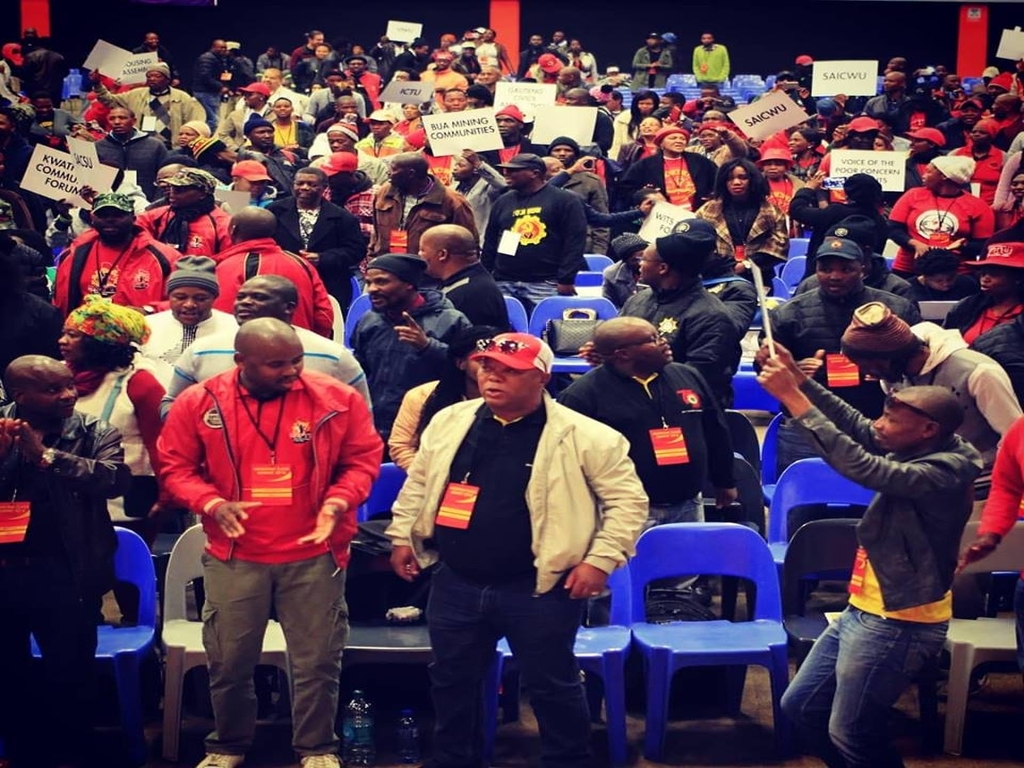The South African Federation of Trade Unions (SAFTU) hosted 1,000 delegates from over 147 working class formations for a two-day summit at the University of Johannesburg, Soweto campus, on July 21-22.
The summit aimed at providing an opportunity for the “working class, rural poor, the downtrodden and marginalized” to discuss how to unite different formations into a mass campaign to struggle for a truly free just, democratic and equal society”, said SAFTU president Mack Chabalala in his opening address.
South Africa being the capital of protest – according to SAFTU, the demand was raised that the working class unite and not struggle in isolation.
A delegate from the National Union of Metalworkers of South Africa (NUMSA), Vuyolwethu Toli, told Peoples Dispatch that on the first day of the summit, delegates were divided into various commissions to discuss the nuances of how to deal with issues affecting working class communities. Commissions debated on issues ranging from decolonized equal education, land and housing, economic crisis, mining, climate change, health and formal and informal economy.
Peoples Dispatch attended the Summit on July 22 when different commissions were reporting back to the delegates. The words often ascribed to Mao Zedong of China – ‘let a hundred flowers bloom: let a hundred schools of thoughts contend” – characterized the presentations and debates. One delegate called the summit “a festival of ideas”.
However, the summit was not just a contestation of different schools of thoughts but also reflected on key issues. For example, the commission on mining noted that the sector had its origins in migrant labor and that this continued as the status quo. Therefore, there was a need to transform the industry. The commission recommended that the mines be nationalized and be managed by workers and communities closer to them. Mining licences should not be issued without mining communities’ consent, the commission suggested, further demanding that the mine owners in South Africa must be held criminally liable for polluting the environment.
Different commissions further noted that there must be free access to quality health care services and quality education and that land must be redistributed equally among the people of South Africa.
Everyone spoke in unison on the fact that the root cause of the problem was capitalism. During the plenary session, a student representative sad “everyone agrees in this house that the origin of our plight is capitalism … and that the only way to emancipate ourselves is through socialism that will come via a working-class revolution”.
The current government, delegates further observed, had sold out the working class agenda by adopting anti-poor neoliberal policies. There was also agreement that the working class had to unite not just in South Africa, but internationally in fighting capitalism.
Robust and sharp debates ensued on the modalities of how the working class would challenge the state and capitalism. Some delegates argued that there was a need for a socialist movement but felt that it should be informed by community struggles. A bottom-up approach – not a top down approach – was preferred by these delegates, mostly representing community-based organizations and student formations.
Another section of delegates largely representing the labor movements advanced the dominant view, calling for a socialist revolutionary workers political party. A socialist party, delegates argued, was the only vehicle or united front to advance the class interest of the working poor.
The summit resolved to meet again with delegates from different movements present to make and draft resolutions and declarations. In principle, everyone agreed that further fragmentation of the working class must come to an end and that it must fight under one banner.





